The moment thrillers come into discussion; there’s just no way Korean films aren’t brought up. They’ve long stood at the top of the genre – not because of flashy action or predictable tropes, but because of their raw, unpredictable storytelling. The thing about Korean thrillers is that you never quite know how dark they’ll go – and they often go deeper than you’d expect.
These films don’t rely on cheap thrills or overused jump scares. The real horror lies in the human condition – in the quiet tragedies, the irreversible mistakes, the corrupt systems, and the emotional devastation that lingers long after the credits roll. It’s not the monster under the bed that keeps you up – it’s the idea that what you just watched could happen to anyone. It could happen to you.
What makes these films unforgettable is their emotional honesty, even when they’re brutal. They challenge viewers not just to be entertained, but to reflect – on society, justice, morality, and the thin line between right and wrong. Whether it’s a tale of revenge, survival, or systemic failure, Korean thrillers know how to stay with you. They don’t just end – they haunt.
This Cinelist brings together some of the most iconic and impactful Korean thrillers – each one a masterclass in storytelling, mood, and tension. Brace yourself.
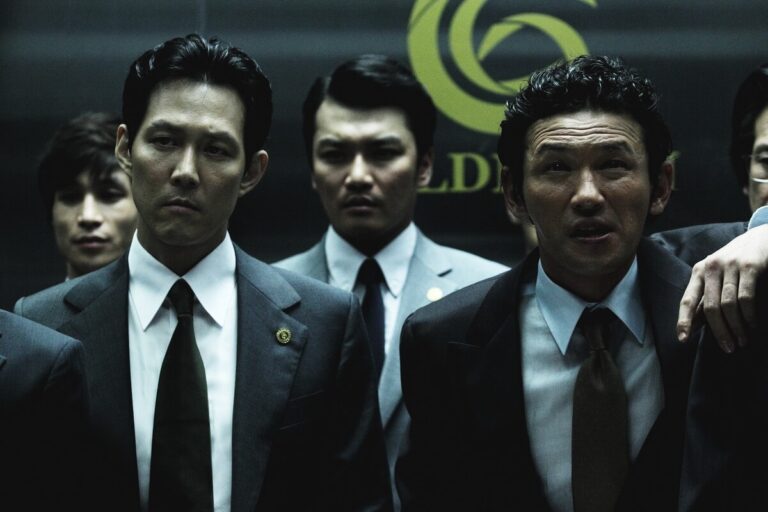
New World
Director: Park Hoon-jung
I love this movie so much. Korean thrillers are on a different level, and New World is proof of that. The characterization, the finesse, the sheer intensity of it all, it’s everything you want in a crime thriller and more.
The story follows an undercover cop who’s been embedded deep in a crime syndicate for years. When the boss dies, a power struggle erupts, and suddenly everything he’s worked for hangs in the balance. Loyalties blur, lines get crossed, and you’re never quite sure who’s playing who. The tension builds with every scene, keeping you on your toes the entire time. Something’s always happening, always shifting, and just when you think you’ve figured it out, the film pulls another twist.
But what really sets New World apart is how it’s executed. The acting from the entire cast is phenomenal. Lee Jung-jae, Choi Min-sik, Hwang Jung-min, they all bring their A-game, making every interaction crackle with energy and danger. You can feel the weight of every decision, every betrayal, every moment of doubt.
And then there are the fight scenes. That parking lot brawl alone is worth the price of admission. Four or five hundred people fighting at once, and yet it’s captured so cleanly, so viscerally. You can follow every punch, every swing, every chaotic moment. The choreography and camera work are insane. It’s not just action for action’s sake, it’s storytelling through violence, and it’s executed flawlessly.
If you want to watch a good Korean thriller, this is it. New World delivers on every front.
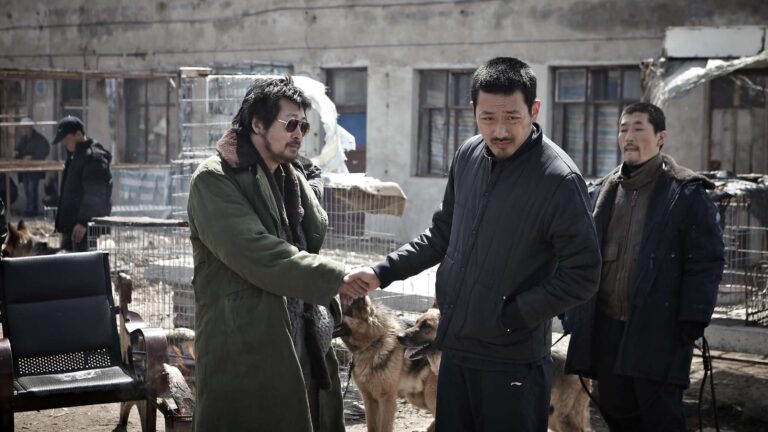
The Yellow Sea
Director: Na Hong-jin
Where to Watch:
The Yellow Sea is wild, violent, and absolutely relentless. From the same director who gave us The Chaser, this film takes everything you loved about that movie and cranks it up even higher.
The story follows Gu-nam, a taxi driver drowning in debt and desperation in a small Chinese-Korean border town. His wife left for South Korea months ago and hasn’t been heard from since. When he’s offered a chance to wipe his debt clean by traveling to Seoul to carry out a hit, he takes it. What seems like a straightforward job quickly spirals into chaos, and suddenly Gu-nam is on the run, caught between gangsters, cops, and a web of violence he can barely escape.
What makes The Yellow Sea hit so hard is how deeply you feel Gu-nam’s loneliness. He’s a man with nothing left, clinging to the smallest shred of hope, and that desperation permeates every frame. You’re right there with him, suffocating under the weight of it all. But the film doesn’t let you sit with that feeling for long. There’s always too much happening. The tension never lets up. The violence is raw, brutal, and unforgiving.
The action sequences are insane. Axe fights, car chases, brutal hand-to-hand combat, it’s all shot with such intensity that you can barely catch your breath. Na Hong-jin knows how to make you feel every punch, every swing, every moment of pure survival instinct kicking in.
The more I watch Korean thrillers, the more my expectations increase, and they just keep delivering. The Yellow Sea is no exception. It pulls you into this world of crime and desperation and doesn’t let go until the very end.
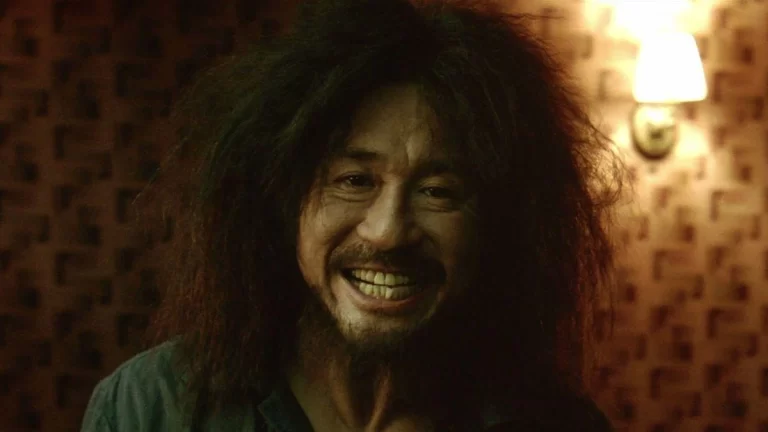
Oldboy
Director: Park Chan-wook
Where to Watch:
Park Chan-wook’s Oldboy isn’t just a thriller it’s a psychological punch to the gut. The film follows Oh Dae-su, a man mysteriously imprisoned for 15 years without explanation, only to be suddenly released and thrust into a twisted game of revenge and revelation.
What begins as a standard mystery quickly spirals into an operatic tale of trauma, obsession, and fate. With masterful direction, stylized violence (including the now-iconic hallway hammer fight), and a mind-bending plot twist, Oldboy balances brutality with heartbreaking pathos.
Choi Min-sik delivers a tour-de-force performance, capturing every nuance of a man unraveling and rebuilding himself through vengeance. The storytelling is non-linear, the cinematography bold, and the moral questions unsettling making it a film you don’t just watch, but experience.
Not for the faint-hearted, Oldboy is a seminal work that helped catapult Korean cinema onto the world stage.
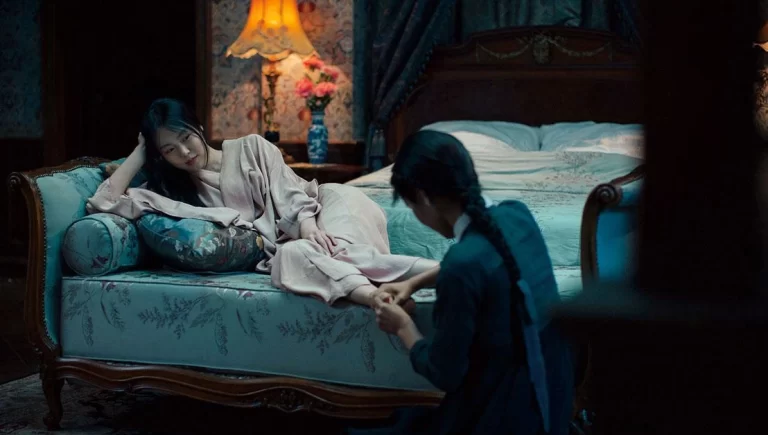
The Handmaiden
Director: Park Chan-wook
Where to Watch:
A sensual, suspenseful blend of psychological tension and visual poetry, The Handmaiden is Park Chan-wook at his most refined. Inspired by Sarah Waters’ novel Fingersmith but relocated to 1930s Japanese-occupied Korea, the film weaves a complex tale of deception, desire, and power.
At its heart is the story of Sook-hee, a pickpocket hired to pose as a maid to a wealthy Japanese heiress, Lady Hideko, in a con to steal her fortune. But as the two women grow closer, hidden agendas unravel and unexpected emotions take hold leading to a cascade of revelations and reversals that redefine the narrative with each act.
Every frame is meticulously composed, lush with period detail and subtext, while the dual perspectives create a puzzle box of shifting truths. The film’s eroticism is not just aesthetic but integral to the characters’ liberation and betrayal. Initially, the characters of the movie are simple and entirely what they seem. We know their intentions, their innocence, and their history that moulded them into what they have become. But from the very moment the film gives us the first twist, it makes us scratch our heads into thinking who exactly is naïve and foolish. Soon enough, the movie teaches us to not trust everything we see.
With haunting performances and a wickedly clever structure, it’s a masterclass in suspense and storytelling. The Handmaiden is filled with so many twists that it will make you forget how good the previous one was! This type of perfection for this amount of ambition is really hard to see nowadays.
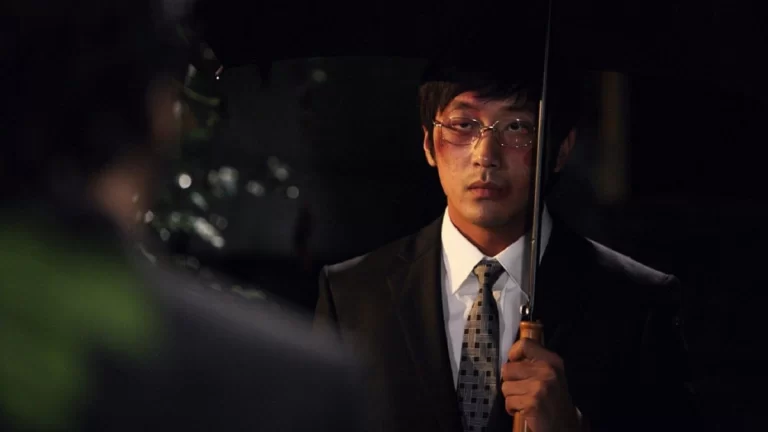
The Chaser
Director: Na Hong-jin
Where to Watch:
Fast, brutal, and nerve-wracking The Chaser is a relentless thriller that flips the serial killer genre on its head. Based loosely on real events, it follows Jung-ho, a disgraced ex-cop turned pimp, who begins to suspect something’s terribly wrong when several of his girls go missing. When he finally tracks down the man responsible, he’s horrified to realize the police system he once served is too slow and bureaucratic to stop what’s coming.
Na Hong-jin’s directorial debut wastes no time. The tension is razor-sharp, the violence shockingly raw, and the cat-and-mouse game plays out not between good and evil, but between flawed, desperate humans trying to outpace fate. What makes The Chaser unique is that the killer is caught early on the suspense lies not in who did it, but in whether justice can be served in time.
The Chaser is a gripping critique of systemic failure wrapped in a breathless thriller. It’s raw, heartbreaking, and terrifyingly plausible exactly what great Korean thrillers are made of. Any director should study this movie to understand what a thriller should be.
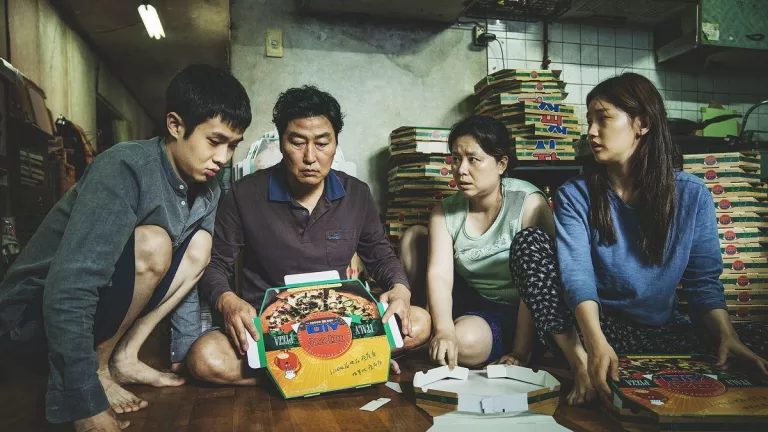
Parasite
Director: Bong Joon Ho
Where to Watch:
I don’t say this often and I don’t really know how else to emphasize this, but I have never quite seen a movie like this. This might be a cliched statement now, but how else can I convince you that this movie is actually quite different?
Few films have gripped the world like Parasite. Bong Joon-ho’s genre-defying masterpiece starts as a dark comedy and slowly transforms into a biting social thriller a slow-creeping descent into class warfare that simmers until it explodes.
The story follows the Kim family, struggling to make ends meet in a semi-basement home, who cleverly infiltrate the lives of the wealthy Park family by taking on various roles under false pretenses. What begins as a clever con evolves into something far more unsettling, revealing the cracks in both families’ facades.
Taut with suspense and packed with metaphor, Parasite thrives on its tonal shifts one moment laugh-out-loud funny, the next deeply unnerving.
In the end, I don’t know what was right or what was wrong, nor do I know if whatever happened was fair. All I know is that it is a brutally honest reflection of what our society has become and nothing was shown that is not possible. Before you know it, the director has pushed you into thinking about every detail the movie shows. And that turns out to be the movie’s most outstanding achievement. The thought has crept into my mind ever since the film ended and I don’t think it is going to leave easily.
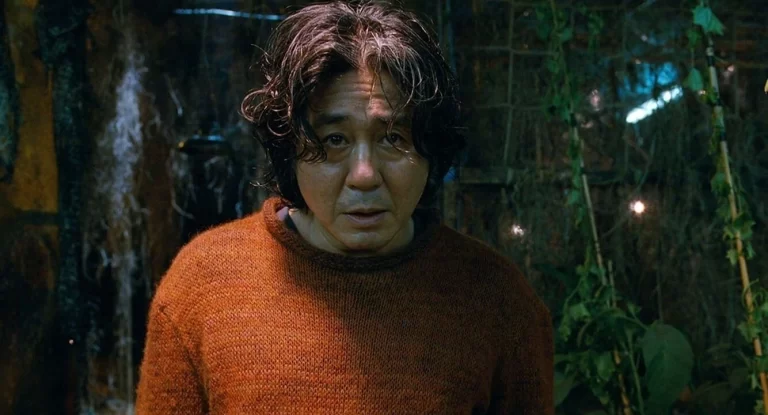
I saw the Devil
Director: Bong Joon Ho
Where to Watch:
What happens when revenge consumes even the righteous? I Saw the Devil takes that question and drags it through the darkest corners of the human psyche. This brutal cat-and-mouse thriller pits a secret agent against the serial killer who murdered his fiancée but instead of ending things quickly, he chooses to toy with the killer in a sadistic game of retribution.
Kim Jee-woon crafts a relentless narrative that blurs the lines between justice and vengeance. The film flips expectations the hunter becomes more monstrous with every turn, while the hunted, a chillingly calm Choi Min-sik (of Oldboy fame), becomes a vessel for pure chaos. Lee Byung-hun’s cold, calculated performance as the grieving fiancé delivers both heartbreak and horror in equal measure.
The violence here isn’t stylized or sanitized it’s brutal, visceral, and intentionally hard to watch. Yet beneath the gore lies a haunting meditation on how revenge can rot the soul and strip away humanity.
I Saw the Devil is not your typical thriller it’s a psychological descent into moral ambiguity.
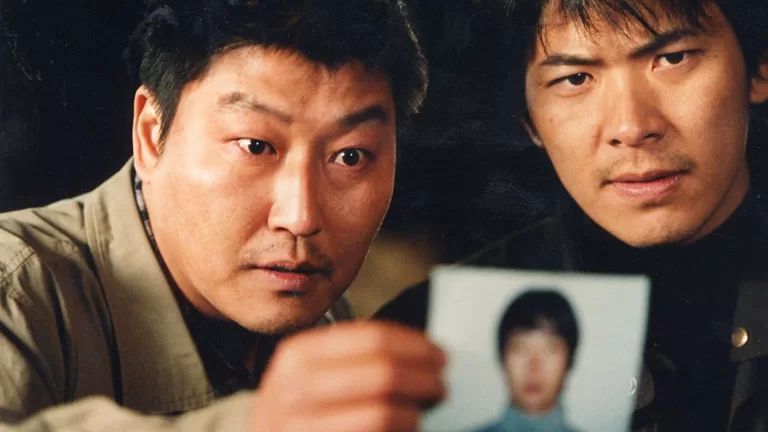
Memories of Murder
Director: Bong Joon Ho
Where to Watch:
Before Parasite, Bong Joon-ho delivered this haunting, slow-burn thriller based on Korea’s first recorded serial killings. Memories of Murder isn’t just a gripping investigation it’s a quiet scream into the void of unresolved justice.
Set in rural 1980s Korea, the film follows two detectives the brash and impulsive local officer Park Doo-man, and the more methodical Seoul detective Seo Tae-yoon as they struggle to identify a serial killer targeting women. But instead of a clean resolution, Bong crafts a deeply human, often tragic portrait of futility in the face of institutional failure.
The pacing is deliberate, building tension through mood, atmosphere, and small moments of devastating quiet. Song Kang-ho leads with a masterful performance, capturing a man slowly unraveling under pressure, while Kim Sang-kyung brings balance as his increasingly disillusioned partner.
The movie got me invested into the story. It is really unbelievable how desperate it got me just like the detectives. I was really praying and hoping for that one clue that would give you that hope of slightest of the chances. And the moment you seem to have it all, that feeling you think you’ve figured it all, in that very moment everything slowly slips out of your hand.
What sets Memories of Murder apart is its refusal to conform to genre expectations. It’s not about heroism or answers, but the pain of not knowing the helplessness of chasing ghosts. The final scene, subtle and unforgettable, lingers long after, like the echo of a question left unanswered.
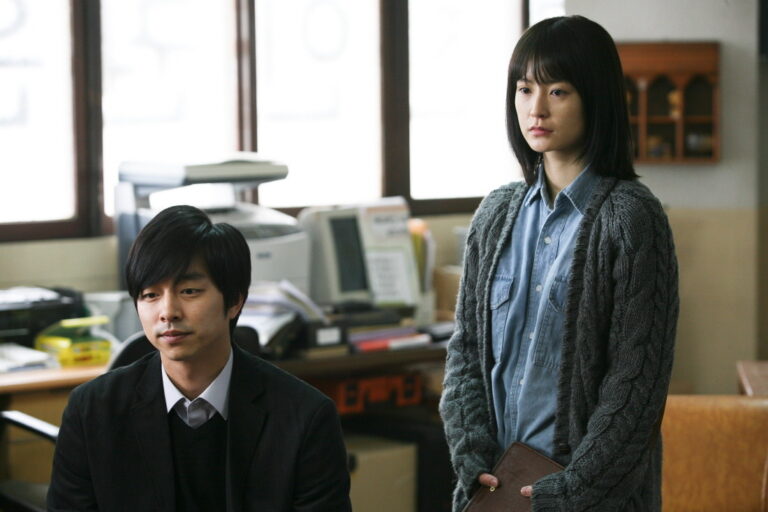
Silenced
Director: Hwang Dong-hyuk
Where to Watch:
You would have to be very strong hearted to watch this movie. And even more strong hearted to digest the fact that this was all adapted from a true story.
It follows a newly appointed art teacher, played by Gong Yoo, who uncovers the horrific abuse of hearing-impaired children at a Korean school and the institutional cover-up that protects the perpetrators.
Directed by Hwang Dong-hyuk (Squid Game), Silenced is more than a crime thriller it’s a call to conscience. The suspense doesn’t stem from action sequences or chases, but from the suffocating weight of injustice. As the teacher and a human rights activist dig deeper, they’re met with systemic corruption, apathy, and threats making every step toward truth feel like a battle uphill.
Gong Yoo delivers a quiet, emotionally grounded performance that mirrors the viewer’s outrage and helplessness. The film is unflinching in its portrayal of the abuse, but never gratuitous instead, it demands the audience bear witness to a reality that was, for years, silenced.
Silenced sparked real-world change in South Korea, leading to public outcry and legal reform. As a thriller, it’s devastating. As a film, it’s necessary.
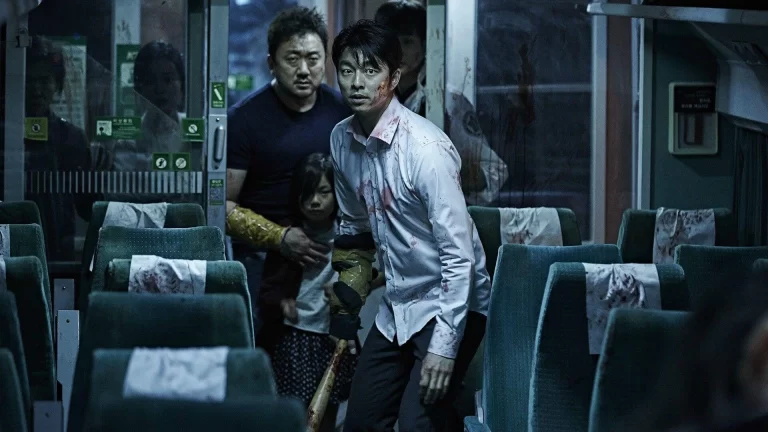
Train to Busan
Director: Hwang Dong-hyuk
Where to Watch:
Thriller, horror, action Train to Busan blends them all with breakneck intensity and a surprisingly tender heart. What starts as a routine train ride from Seoul to Busan quickly spirals into a full-blown zombie outbreak, trapping passengers in a high-speed nightmare where survival is the only goal.
But what truly elevates Train to Busan beyond genre thrills is its emotional core. At the center is Seok-woo, a workaholic father trying to reconnect with his young daughter. As the undead close in, the film explores sacrifice, selfishness, and what it means to be human when the world collapses around you.
Yeon Sang-ho masterfully paces the story, never letting the action overwhelm the emotion. The confined setting turns every car of the train into a tense, claustrophobic battleground, while character arcs unfold with surprising depth. Standouts include Ma Dong-seok as the tough-yet-tender hero you’ll root for instantly, and Kim Su-an as the daughter whose innocence pierces through the chaos.
These zombies aren’t the ones that walk drowsily as you see in other films. These suckers run, and they run fast. Train to Busan truly redefined the zombie genre forever!
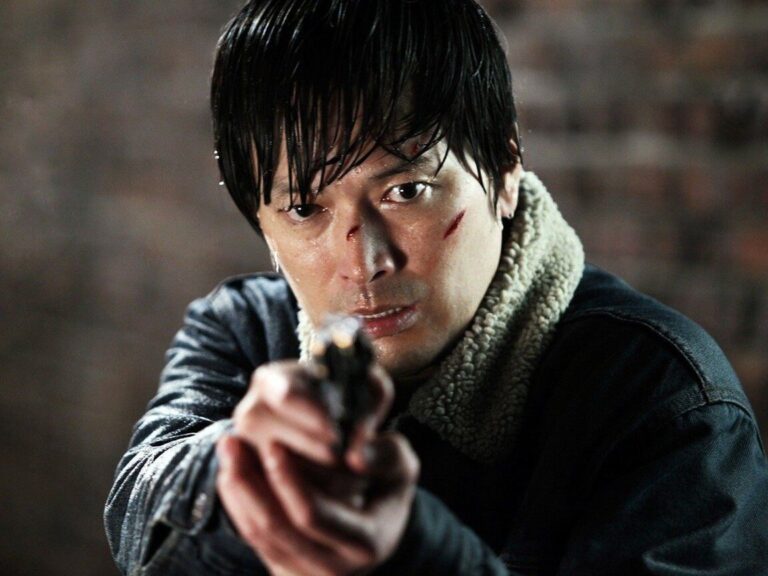
Confession of Murder
Director: Christian González
Where to Watch:
Confession of Murder hooks you with a wild premise: a man steps forward claiming to be a long-unidentified serial killer just after the statute of limitations expires. The media explodes, the public is obsessed, and the detective who failed to catch the killer years ago is dragged back into the chaos.
While some twists may feel a bit predictable, the film still delivers an emotional punch. It’s less about what happens and more about why diving into themes of guilt, loss, and the hunger for justice. The action is slick, the tension tight, and the questions it raises about fame and morality linger long after the credits roll.
Confession of Murder isn’t perfect, but it’s a gripping watch that blends spectacle with just enough heart to keep you thinking.
Join the FilmFascination Club!
All the updates right in your Inbox! (We will never spam you with junk mails)
You will get a message on the top of the form once your subscription is successful.

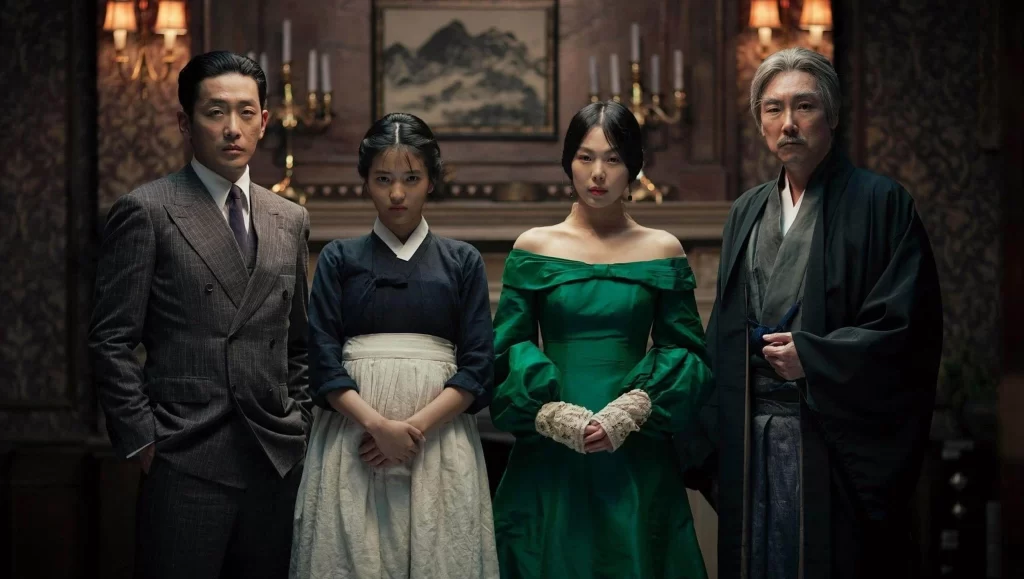
Good!
Some really great info, Glad I noticed this.
You are my intake, I have few blogs and often run out from to post.